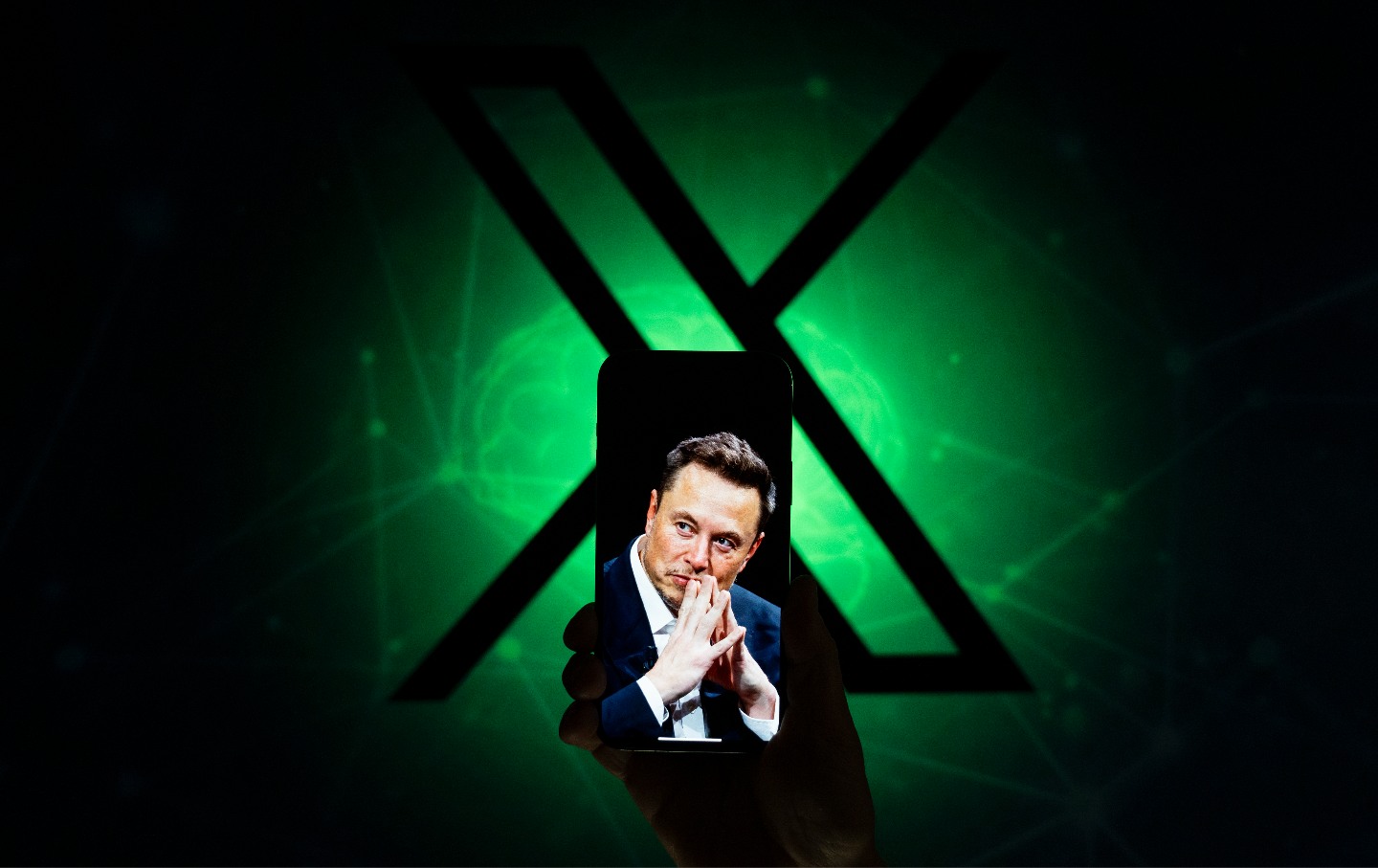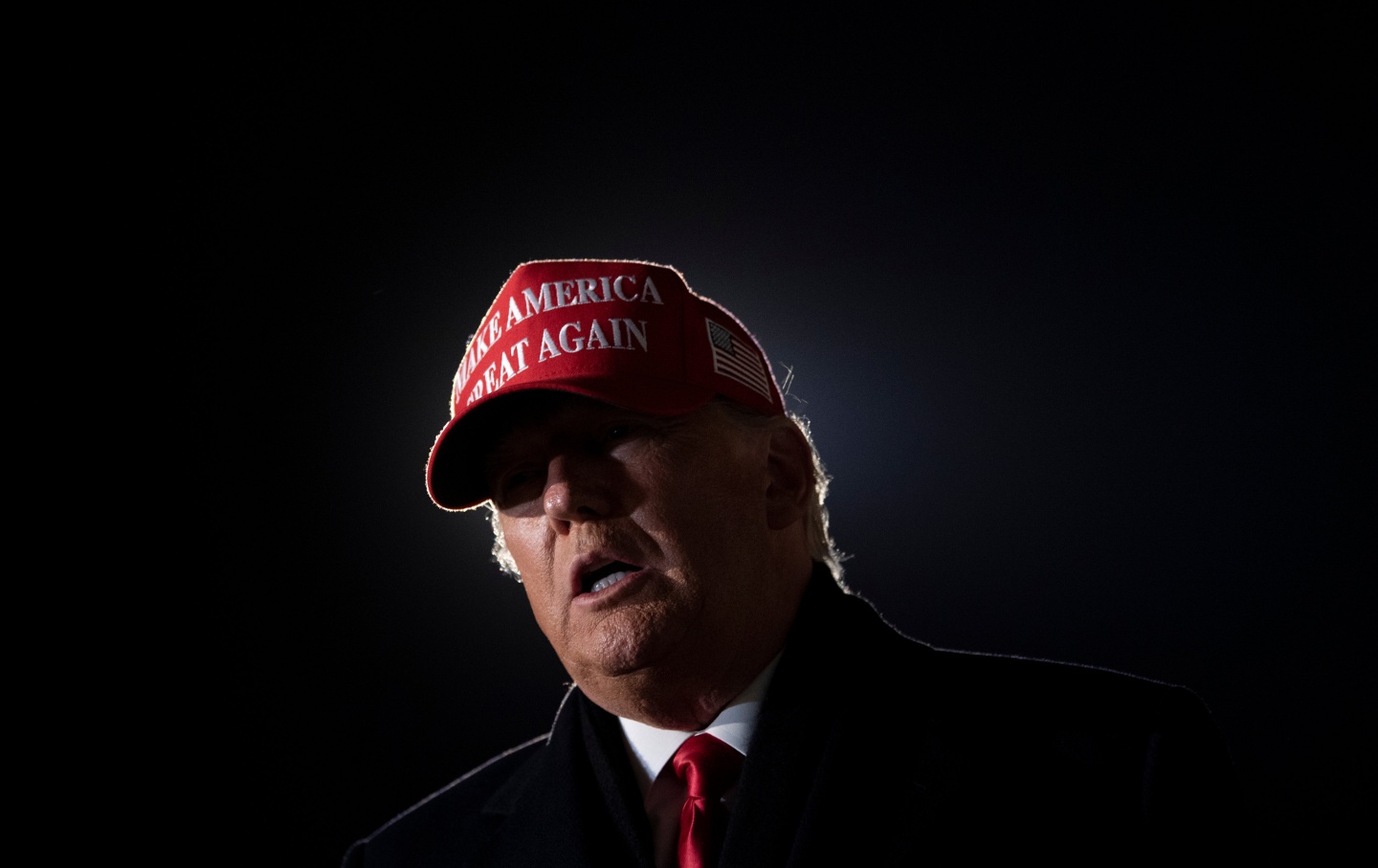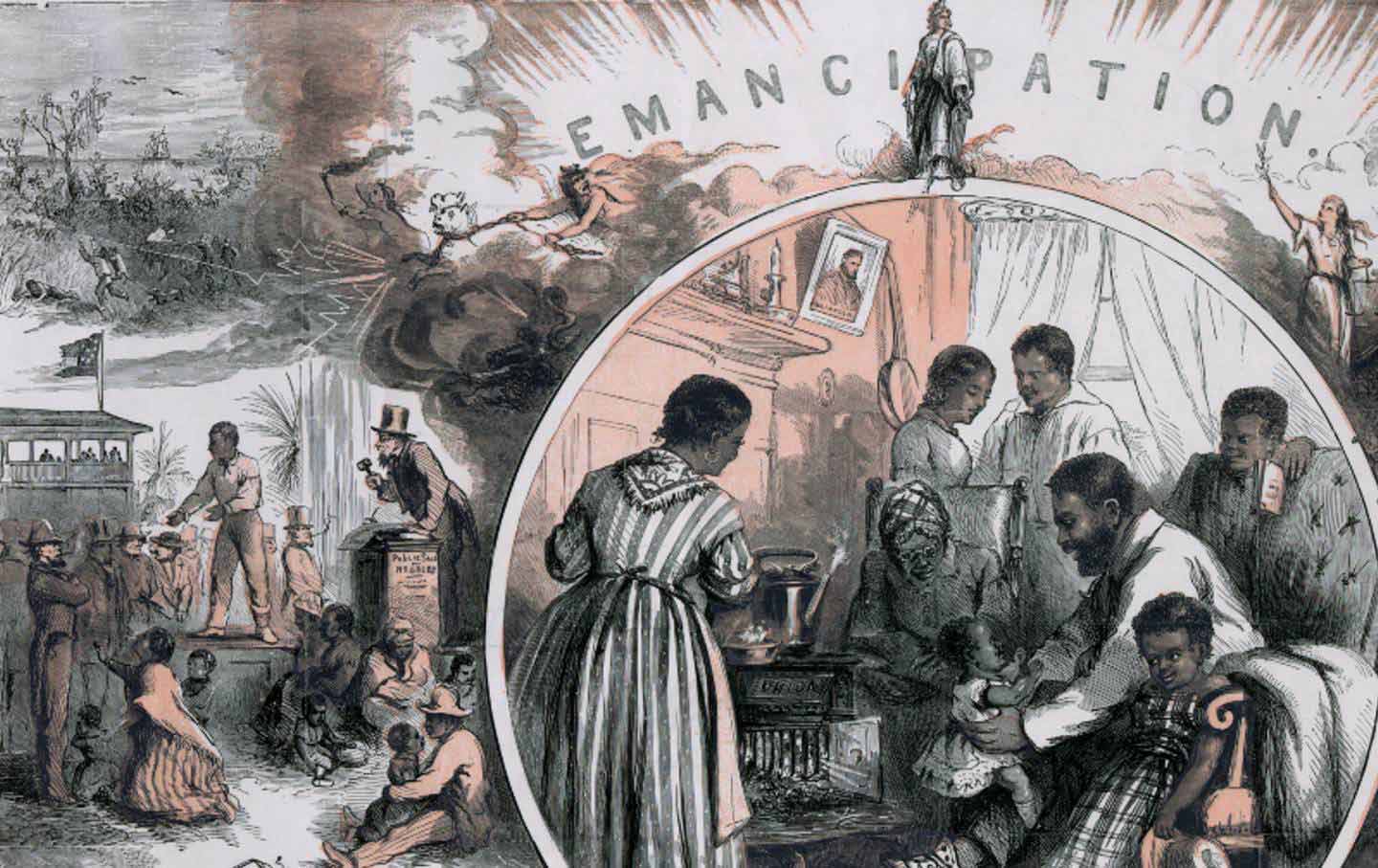Elon Musk Is a Threat to Democracy
How the owner of Tesla and Space X became a state within a state.

On October 7, 2022, as Elon Musk was on the cusp of purchasing Twitter, he was cheered on by Jonathan Greenblatt, head of the Anti-Defamation League (ADL). Speaking on CNBC, Greenblatt enthused that “Elon Musk is an amazing entrepreneur and extraordinary innovator. He is the Henry Ford of our time.” This startling praise teetered on the fine line separating inadvertent irony from absurdity.
The ADL is ostensibly an organization that fights anti-Semitism and allied forms of bigotry. While it’s true that Ford and Musk are both giants in the field of automobile manufacturing, Ford was a notorious anti-Semite who promoted the forged Protocols of the Elders of Zion, a central text of modern Jew-hatred. In 1937, the Nazi regime saluted Ford’s services as a fellow traveler of fascism by awarding him the Grand Cross of the Supreme Order of the German Eagle. Beyond his bigotry, Ford was notorious for hiring goons as strikebreakers. Ford was a classic case of a plutocrat whose desire for power makes him an enemy of democracy. It seems strange that the head of the ADL would use Ford of all people as an exemplar of a genius inventor.
Greenblatt’s comment was a blunder, but, as it turned out, also accidentally true. It’s increasingly evident that Musk, by some measures the richest man in the world, is becoming the Henry Ford of our time. But this is true in ways that should be understood as a condemnation, not praise. Under Musk’s control, Twitter (which he has renamed X, a letter he fetishes and also gave as a name to one of his children) has become a hothouse where all sorts of bigotries flourish—very much including anti-Semitism. This led to a direct clash with the ADL.
On Tuesday, Rolling Stone reported that last week
ADL director Jonathan Greenblatt had a meeting with X CEO Linda Yaccarino to discuss the prevalence of hate speech on the platform. This kicked off a trending hashtag campaign, #BanTheADL, predicated on the groundless idea that the organization has stifled free speech on X (and should therefore have their account removed). But the tag, promoted by known antisemites and white supremacists, generated a slew of hateful content. When Musk proved receptive to the movement and chimed in to allege that “ADL has tried very hard to strangle X/Twitter,” he did so in reply to Keith Woods, an antisemitic YouTuber affiliated with notorious racists Richard Spencer and Nick Fuentes.
The tweets by Woods and others under the hashtag #BanTheADL, which received Musk’s imprimatur, were a toxic stew of anti-Jewish smears.
The anti-Semitism inspired by #BanTheADL is so bad that it almost compels a defense of the ADL— a deeply dodgy organization that is perfectly content to whitewash all kinds of bigotry as long as the perpetrators are supportive of Israel. The ADL often combines critiques of real anti-Semitism with baseless accusations of anti-Semitism to smear pro-Palestinian activism. But however dubious the ADL might be, it doesn’t deserve the anti-Semitic attacks of people like Keith Woods, now amplified by a man of stupendous wealth.
Beyond promoting anti-Semitism, Musk is following in Ford’s footsteps in assuming that the rules of democracy apply only to lesser mortals. Musk is as anti-union as Ford was. As Ronan Farrow documented in a recent New Yorker profile, Musk’s modus operandi is to violate safety regulations and dare the government to hold him accountable. Because of his extreme wealth and the government’s reliance on his industries (which enjoy dominance in fields like electric car manufacture and the rocket launches needed, for example, to resupply the International Space Station and put satellites used by the Pentagon in orbit), he often gets his way.
Farrow reports:
Officials who have worked at OSHA and at an equivalent California agency told me that Musk’s influence, and his attitude about regulation, had made their jobs difficult. The Biden Administration, which is urgently trying to reduce reliance on fossil fuels, has concluded that it needs to work with Musk, because of his dominant position in the electric-car market. And Musk’s personal wealth dwarfs the entire budget of OSHA, which is tasked with monitoring the conditions in his workplaces.
Musk is now so powerful he has his own foreign policy. On Thursday, CNN, citing Walter Isaacson’s forthcoming biography of Musk, reported, “Elon Musk secretly ordered his engineers to turn off his company’s Starlink satellite communications network near the Crimean coast last year to disrupt a Ukrainian sneak attack on the Russian naval fleet.” This incident has been known about since it happened last October. The new information is that it happened under Musk’s personal command and that he claims he spoke to Russian officials before making the decision. (Musk might also have been influenced by some of the right-wing voices he likes to engage with on Twitter, who called for the Starlink cancellation of service).
Musk may or may not be right in his view that the United States should push for negotiations with Russia. That’s an argument many who disagree with his politics also argue for, as I myself have. But, in a democracy, Musk should not be able to set the limits of military policy on his personal whim. If he wants to argue for negotiations, he’s free to do so as any other private citizen. Yet, because of his economic dominance, he has become a state within the state, setting policy rather than just advocating for it.
Musk is a plutocrat with near-kingly power. He used to style himself a pro-Obama centrist but has increasingly moved to the right, warning of “the woke mind virus” and promoting Ron DeSantis. A personal antipathy toward trans people (he has a trans child who has disavowed Musk’s parentage) is one possible motive for the shift. Perhaps, like Henry Ford, Musk might also be shaped by the economics of automobile manufacturing—a field whose vulnerability to rising interest rates makes him susceptible to anti-Semitic fantasies about the supposed Jewish dominance of finance.
But the larger drift of Musk’s politics, like Ford’s politics in the early 20th century, is driven by an autocratic personality. Musk likes to get his own way and resents any force (be it “woke” social movements, unions, or government regulators) who stand in his way.
As Ronan Farrow notes, Musk’s influence is
Popular
“swipe left below to view more authors”Swipe →brazen and expansive. There is little precedent for a civilian’s becoming the arbiter of a war between nations in such a granular way, or for the degree of dependency that the U.S. now has on Musk in a variety of fields, from the future of energy and transportation to the exploration of space. SpaceX is currently the sole means by which NASA transports crew from U.S. soil into space, a situation that will persist for at least another year. The government’s plan to move the auto industry toward electric cars requires increasing access to charging stations along America’s highways. But this rests on the actions of another Musk enterprise, Tesla. The automaker has seeded so much of the country with its proprietary charging stations that the Biden Administration relaxed an early push for a universal charging standard disliked by Musk. His stations are eligible for billions of dollars in subsidies, so long as Tesla makes them compatible with the other charging standard.
Every billionaire, as the saying goes, is a policy failure. Musk’s rise has to be set against the failure of governments that have been emaciated during the neoliberal era, rendering them incapable of undertaking the fundamental research and development we need in the age of climate change.
There’s no reason the rockets and electric cars that Musk builds should not be manufactured by government agencies. In the case of rockets, NASA itself once did the job that has now been privatized. As Farrow notes, “In the past twenty years, against a backdrop of crumbling infrastructure and declining trust in institutions, Musk has sought out business opportunities in crucial areas where, after decades of privatization, the state has receded.” In the field of electric cars, China is leap-frogging ahead of the United States, producing 6.8 million cars a year as against 800,000. One reason is that China is not relying on individual geniuses like Musk but crafting government subsidies to hasten the transition away from fossil fuels. The problems we face require collective action, not a return to archaic myths of lone geniuses as saviors.
Musk has indeed become the new Henry Ford—but only because the political system, Democrats as well as Republicans, have allowed him to fill that role. The world will only improve once we realize we don’t need any more Henry Fords.
We cannot back down
We now confront a second Trump presidency.
There’s not a moment to lose. We must harness our fears, our grief, and yes, our anger, to resist the dangerous policies Donald Trump will unleash on our country. We rededicate ourselves to our role as journalists and writers of principle and conscience.
Today, we also steel ourselves for the fight ahead. It will demand a fearless spirit, an informed mind, wise analysis, and humane resistance. We face the enactment of Project 2025, a far-right supreme court, political authoritarianism, increasing inequality and record homelessness, a looming climate crisis, and conflicts abroad. The Nation will expose and propose, nurture investigative reporting, and stand together as a community to keep hope and possibility alive. The Nation’s work will continue—as it has in good and not-so-good times—to develop alternative ideas and visions, to deepen our mission of truth-telling and deep reporting, and to further solidarity in a nation divided.
Armed with a remarkable 160 years of bold, independent journalism, our mandate today remains the same as when abolitionists first founded The Nation—to uphold the principles of democracy and freedom, serve as a beacon through the darkest days of resistance, and to envision and struggle for a brighter future.
The day is dark, the forces arrayed are tenacious, but as the late Nation editorial board member Toni Morrison wrote “No! This is precisely the time when artists go to work. There is no time for despair, no place for self-pity, no need for silence, no room for fear. We speak, we write, we do language. That is how civilizations heal.”
I urge you to stand with The Nation and donate today.
Onwards,
Katrina vanden Heuvel
Editorial Director and Publisher, The Nation
More from The Nation

When It Comes to Public Health, We Need to Tap Into People, Not Pundits When It Comes to Public Health, We Need to Tap Into People, Not Pundits
The future of our health under Trump is going to be bleak. But the solution lies in our communities, not individual personalities.

Mr. Scarborough Goes to Mar-a-Lago Mr. Scarborough Goes to Mar-a-Lago
The hosts of Joe Biden’s favorite political talk show have quickly pivoted to kissing the ring of the incoming president.

Watching a Parallel Media Try to Make Trump the Big Sports Story Watching a Parallel Media Try to Make Trump the Big Sports Story
The president-elect did not dominate the world of sports this weekend, but Fox News and Internet tabloids are inventing new realities.

The First Amendment Will Suffer Under Trump The First Amendment Will Suffer Under Trump
Given what’s heading our way, we need a capacious view and robust defense of the First Amendment from all quarters.

Slavery in an Age of Emancipation Slavery in an Age of Emancipation
Robin Blackburn’s sweeping history of slavery and freedom in the 19th century.

How Wisconsin Lost Control of the Strange Disease Killing Its Deer How Wisconsin Lost Control of the Strange Disease Killing Its Deer
Despite early containment efforts, chronic wasting disease has been allowed to run rampant in the state. That’s bad news for all of us.


